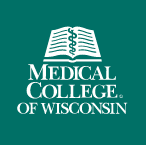SHIP-NP
The Structured History Protocol for Neuropsychology (SHiP-NP©) is an evidence-based, structured clinical protocol for collecting information about history, symptoms and other patient characteristics that are important for neuropsychological exams. Individual items and questions were generally selected from NIH Common Data Elements (CDEs). Using our secure, online forms completion portal, clinical neuropsychologists can collect these data for either clinical or research purposes. The development and management of the SHiP-NP© has been supported by the NAN Clinical Research Grants Program and the National Institute of Mental Health (National Neuropsychology Network; R01MH118514; see www.nnn.ucla.edu). Access to the SHiP-NP© portal may be provided free of charge to clinical NP providers and researchers worldwide.
OVERVIEW
The SHiP-NP© was created to promote standardization and facilitate data harmonization for clinical neuropsychology. It uses a collection of existing NIH CDE instruments to securely gather relevant patient information related to social and demographic background, medical and psychological diagnoses, current symptoms, and functional abilities. Real-time scoring procedures are employed to generate auto-populated outputs of aggregated results for each patient, either in prose text outputs that can be copied and pasted into reports, or in a variety of structured formats (e.g., xlsx, csv, or tab-delimited text files). These results may be reviewed by clinicians to inform neurobehavioral exams and facilitate patient care. Appropriately de-identified data may also be exported to database repositories (with appropriate IRB and institutional compliance approvals).
LEARN MORE
Click on the links provided below to read more about the existing NIH CDE initiatives that make up each domain of the
SHiP-NP© and download free, printable versions of CDE questionnaires.
Consensus Measures for Phenotypes and eXposures (PhenX)
CDEs included in SHiP-NP©: Demographic variables including age, sex, gender identity, race, ethnicity, marital status, educational attainment (modified), annual family income, child-reported parental educational attainment, handedness, generational status, language fluency and proficiency
NINDS Common Data Elements (NINDS CDEs)
CDEs included in SHiP-NP©: Demographic variables including age, sex, gender identity, race, ethnicity, marital status, educational attainment (modified), annual family income, child-reported parental educational attainment, handedness, generational status, language fluency and proficiency
APA DSM Level 1 and 2 Cross-Cutting Symptom Measures, including Patient Reported Outcomes Measurement Information System (PROMIS) short-forms for depression, anxiety, anger and sleep disturbance
Quality of Life Outcomes in Neurological Disorders (Neuro-QOL)
- CDEs included in SHiP-NP©: Cognition, Emotional and Behavioral Dyscontrol, Sleep Disturbance, Lower Extremity Function – Mobility, Upper Extremity Function - Fine Motor Abilities, Satisfaction with Social Roles and Activities, Positive Affect and Well-Being, and Stigma
World Health Organization Disability Assessment Schedule 2.0 (WHO-DAS 2.0)
NEW USERS
If you are interested in gaining access to the SHiP-NP©, please complete the form below. After the form is submitted,
your request will be reviewed. Once it is approved, you will receive an email that contains login information for access to the SHiP-NP© system. If you do not receive a reply within 7 business days, please email the study coordinator, Kristen Emanuel (kenriquez@mednet.ucla.edu).
OTHER SITES THAT HAVE REGISTERED
 |
 |
 |
 |
 |
 |
GRANT# R01MH118514